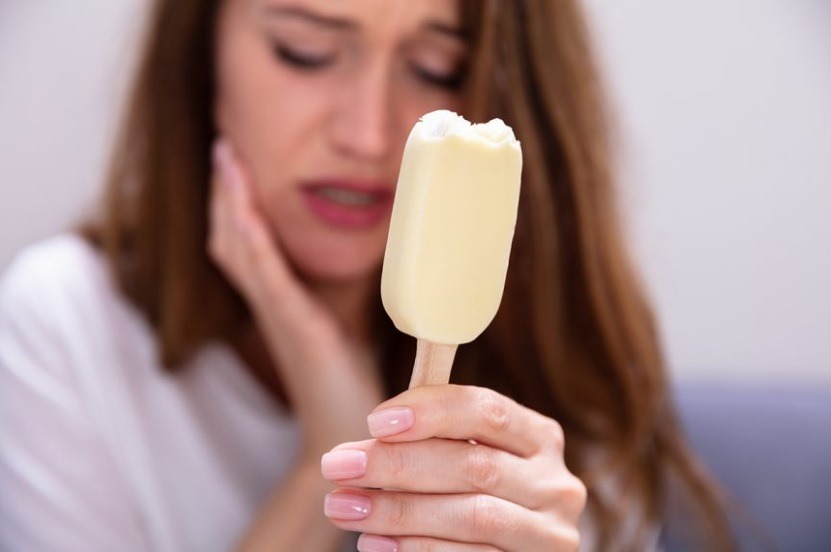Tooth sensitivity (dentine hypersensitivity), is a sharp flash like pain or discomfort that is felt in response to stimuli such as hot and cold substances.
It may be felt temporarily or may chronically affect others, it can be felt on a singular tooth or multiple teeth.
Some people naturally have more sensitive teeth than others, but if your drinking, eating or oral care is impacted by sensitivity it may be a sign to speak to your dentist Canberra.
What can cause sensitivity?
People will feel sensitivity to a range triggers, some common triggers of sensitivity are:
- Hot foods and beverages
- Cold foods and beverages
- Cold air
- Sweets and beverages
- Acidic fruits and beverages
- Brushing
What is the reason why my teeth are sensitive?
The reasons for sensitive teeth can be multifactorial, but there are more common reasons why you may have sensitivity are:
-
Tooth erosion as a result of a highly acidic diet (foods and drinks), vomiting or reflux
-
Tooth Decay, Cracked or Chipped teeth, worn or leaking fillings/crowns can leave the dentine exposed causing sensitivity. If this is the case, the sensitivity you feel may be felt on one tooth or in one particular area in the mouth.
-
Gum disease / gum inflammation (gum disease) or recession can cause the roots of your teeth to be exposed to oral environment
-
Over brushing, using firm pressure and incorrect brushing motion (horizontal / back and forth) can lead to trauma of the gums and contribute to recession
-
Grinding or clenching your teeth can lead to bruising or damage to the periodontal fibres (muscles) that support your teeth leading to increased sensitivity
-
Sensitivity after dental treatment like fillings, crowns and teeth whitening, should be temporary and will generally subside after a week after treatment.
How to treat sensitive teeth?

If it’s a case of gum recession, they may suggest a dental clean and possible changes to your oral hygiene home care if the sensitivity isn’t caused by dental caries or other dental problems.
Some changes you can implement are:
Choosing a toothpaste that is made for sensitive teeth. These toothpastes have ingredients that do not irritate the teeth, and have desensitising agents that block tubules of dentine (second layer of tooth) and exposed root surfaces that travel directly to the nerve of the tooth.
Using a soft bristle toothbrush and brushing more gently or even switching to an electric toothbrush can help reduce further damage to your teeth. As most electric toothbrushes are soft, have a pressure sensor and do half the work for you meaning you don’t have to apply too much pressure when brushing.
Reducing acidic / sugary foods and beverages that may contributing to erosion of your teeth. Erosion of teeth can generally be very gradual however, the lost enamel layer that is worn away cannot be regenerated naturally.
There will come a point where the enamel can be worn away, exposing the second layer of the tooth (dentine).
How to Prevent Sensitive Teeth?
Treatment can help resolve sensitivity, but if its contributed by dental habits it may return if you don’t make any changes. To avoid future problems, continue to practice good dental hygiene care and schedule regular 6 monthly check-ups and teeth cleaning with your Dentist.


